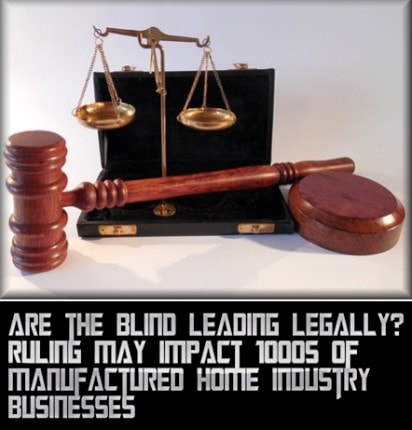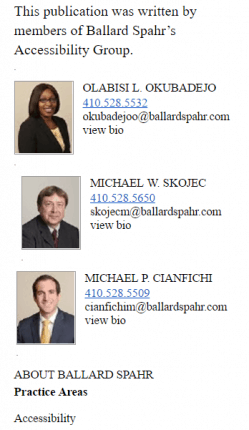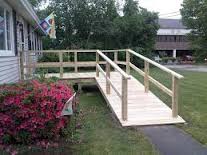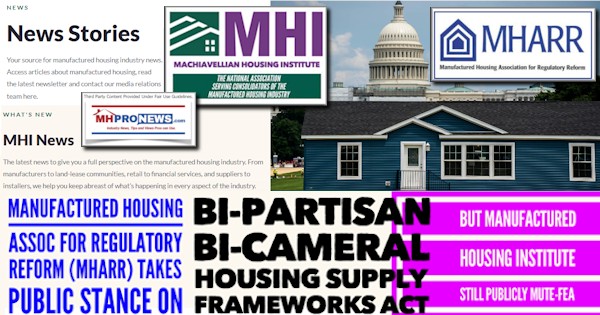
That a wide array of private businesses are subject to the Americans with Disabilities Act (ADA) is not a surprise to thousands of manufactured housing industry professionals from coast to coast.
As recently as this month, Fair Housing attorney – Nadeen Green, JD – has published on the subject of accommodations for service animals and the ADA.
But in this recent court ruling, a federal judge in Florida ruled that a business – grocer Winn-Dixie – “must comply with the Americans with Disabilities Act (ADA) because the website is “heavily integrated” with the store’s physical location,” the Ballard Sphar Accessibility [Law] Group (BSAG), tells MHProNews.

The legal brief said in part, “This case is notable because it is one of the first, if only, Title III ADA website accessibility cases to go to trial.”

“Title III of the ADA, which applies only to private entities, prohibits places of “public accommodation” from discriminating in the full and equal enjoyment of goods, services, and facilities on the basis of an individual’s disability. Drafted in 1990 before the internet boom, the ADA lists 11 categories of physical locations that fall under its purview,” Ballard Sphar said.
“In Gil v. Winn-Dixie Stores, Inc., the plaintiff alleged that the Winn-Dixie website was inaccessible to blind individuals like him,” said BSAG. “Specifically, he alleged that the inaccessibility of the website prevented him from enjoying features of the website such as accessing digital coupons, using the online pharmacy, and finding store locations.”
BSAG elaborated by saying that “The judge found that the online content, including digital coupons, pharmacy, and store locator feature, were sufficiently connected to the physical stores such that the plaintiff was denied the full and equal enjoyment of Winn Dixie’s goods and services.”
“The court ordered an injunction, requiring the parties to confer on a timeline for making the website accessible in conformance with the Web Content Accessibility Guidelines (WCAG) 2.0 criteria, an international standard for making internet content accessible,” the legal group said.
The legal precedent could be far reaching.

MH Industry Impact?
Among the sources that tipped the Daily Business News to this issue is an industry attorney, who does not specialize in such matters, but felt that it could in fact be applied to a variety of businesses in the manufactured home industry that involves public access that falls under the ADA. Such businesses would be well advised to see how this applies to them, and if their websites’ ought to meet under the ADA – “Web Content Accessibility Guidelines (WCAG) 2.0 criteria.” ##
(News, notice – as with any news story that involves the law, no legal advice is being given. Rather, industry professionals that deal with the public in a physical location ought to consider if and how the ramifications for such a case may or may not impact their business.)
(Image credits are as shown above, and when provided by third parties, are shared under fair use guidelines.)


























